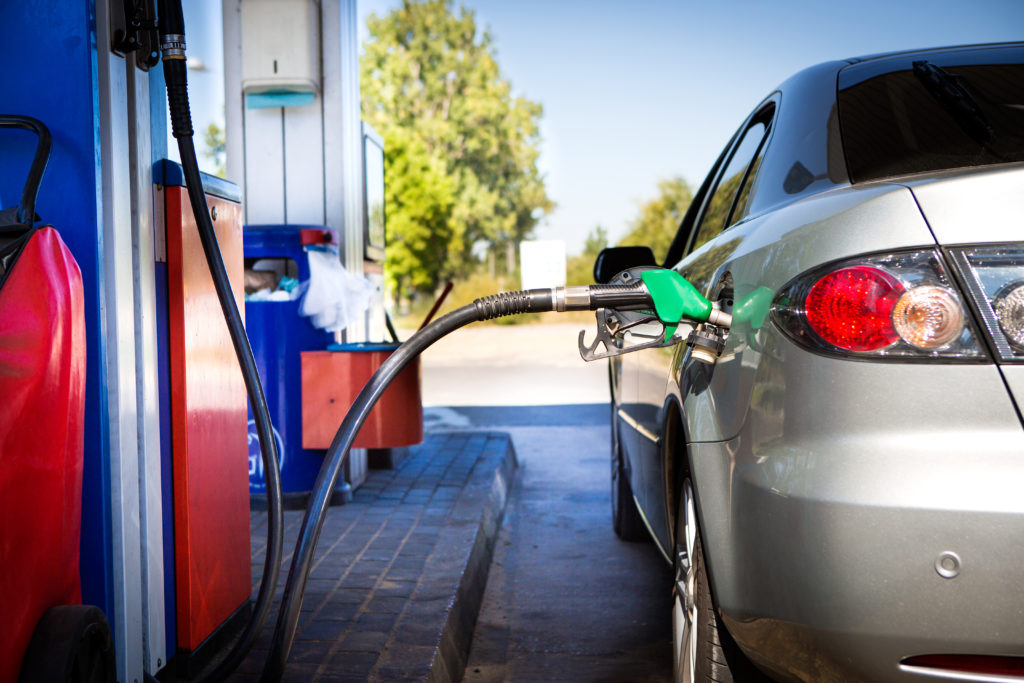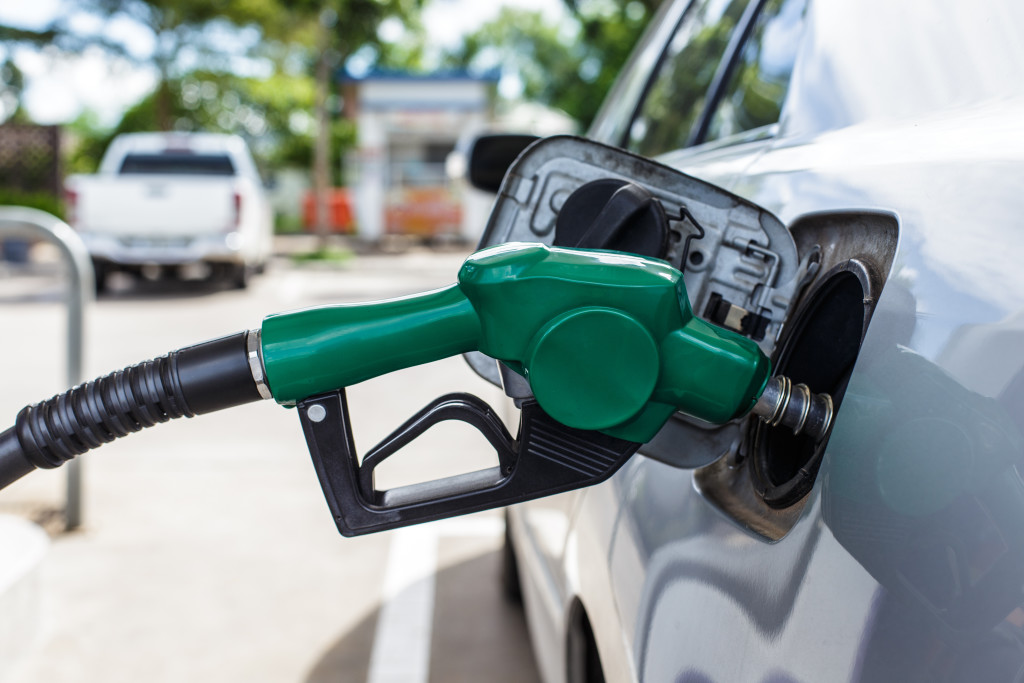Alabama-based oil and gas company doubles production with $575M acquisition

An Alabama-based oil and gas company completed the acquisition of EQT Corporation’s southern Appalachian producing gas and oil and midstream assets earlier this month, doubling its production. Diversified Gas & Oil made the announcement last week that they acquired the midstream production assets (i.e. pipelines) along with other storage, processing, marketing and transportation resources in the Appalachia including spots in the southern half of West Virginia, as well as eastern Kentucky. The acquisition more than doubles the Company’s production to over 60,000 barrels of oil equivalent per day, firmly establishing Diversified as the largest conventional producer in the Appalachian region. “Delivering on our stated objectives has been a guiding principle since our admission to AIM on the London Stock Exchange in February 2017. The addition of these high-quality assets to our growing portfolio and their accretive impact on earnings are tangible results that benefit our Shareholders, and represents a significant milestone in the evolution of our clearly stated strategy,” said Rusty Hutson, CEO of Diversified. “Completing a transaction of this size further increases Diversified’s visibility in the market as a preferred and capable purchaser of oil and gas assets.” The Birmingham-based company also announced the existing workforce will be retained, with more than 250 employees joining Diversified. “We now turn our attention to the optimization and integration of these assets into our expanding operations,” added Hutson. “To help accomplish this task, I am excited to welcome to Diversified the more than 250 exceptional operations personnel who have cared for these assets for years and in many cases, for decades. Their commitment to excellence is a perfect complement to our existing Company culture, and I am confident that the team’s combined efforts will yield even better results.” Diversified closed on the assets on July 18, 2018.
Interior to offer largest oil and gas lease sale in US history

The Interior Department says it will propose the largest oil and gas lease sale ever held in the United States – nearly 77 million acres in the Gulf of Mexico off the coasts of Texas, Louisiana, Mississippi, Alabama and Florida. The sale is scheduled for next March and includes all available unleased areas on the Gulf’s Outer Continental Shelf. The proposal surpasses a lease sale conducted last year by about a million acres. Interior Secretary Ryan Zinke said the propose lease sale was part of the administration’s strategy to achieve what President Donald Trump calls “energy dominance” in the global market. The plan follows a lease sale in the Gulf of Mexico in August that drew $121 million in high bids from energy companies seeking 90 offshore tracts. Republished with permission from the Associated Press.
Harvey continues to impact gas prices in Alabama, pipeline opening delayed

Gas prices continue to rise in the Yellowhammer State as delays to repair the nation’s largest fuel system continue. The Colonial Pipeline, which provides 40 percent of the east coast, shut down its fuel line Thursday due to damage sustained when Hurricane Harvey devastated the Gulf Coast. “We continue to work expeditiously to complete final repairs to our facilities damaged by the storm, and to assess our lines and right of ways to ensure the integrity of our system between Houston and Hebert,” Colonial Pipeline said in a statement. According to the company, the assessments are ongoing and they hope to restart the distillates (Line 2) on Monday, September 4, and gasoline (Line 1) on and Tuesday, September 5 . Alabama drivers have been feeling the pain at the pump since Harvey hit. The average price of a gallon of regular gas is $2.48 in Alabama on Monday, up $0.06 from Friday’s $2.42 due to increased demand from the Labor Day holiday weekend as well from the impact of Harvey. Nationally, the gas average has climbed to $2.65 in the wake of the storm. On Friday, Gov. Kay Ivey declared a state of emergency and enacted the state’s price gouging law to protect drivers in light of shortage.
Explosion in Alabama shuts gas pipeline, shortages possible

For the second time in two months, a pipeline that supplies gasoline to millions of people was shut down, raising the specter of another round of gas shortages and price increases. The disruption occurred when a track hoe — a machine used to remove dirt — struck the pipeline, ignited gasoline and caused an explosion Monday that sent flames and thick black smoke soaring over a forest in northern Alabama, Colonial Pipeline said. One worker was killed and a half-dozen were injured. A September leak that spilled 252,000 to 336,000 gallons of gasoline occurred not far from the location of Monday’s explosion. That leak led to days of dry pumps and higher gas prices in Alabama, Georgia, Tennessee and the Carolinas while repairs were made. The cause of the leak still has not been determined, and the effects of the latest disruption weren’t immediately clear. Colonial Pipeline, based in Alpharetta, Georgia, operates 5,599 miles of pipelines, transporting more than 100 million gallons daily of gasoline, jet fuel, home heating oil and other hazardous liquids in 13 states and the District of Columbia, according to company filings. Authorities have not said which type of fuel was involved in the explosion Monday. Plagued by a severe drought after weeks without rain, the section of the state where the explosion happened has been scarred by multiple wildfires in recent weeks, and crews worked to keep the blaze from spreading. Coleen Vansant, a spokeswoman with the Alabama Forestry Commission, said crews built a 75-foot-long earthen dam to contain burning fuel. The Shelby County Sheriff’s Office said the blaze had been contained but it was unclear how long the fire may take to burn out. Two wildfires caused by the explosion burned 31 acres of land, Vansant said. “We’ll just hope and pray for the best,” Gov. Robert Bentley said in a statement. Houses around the blast scene were evacuated, and sheriff’s Capt. Jeff Hartley said it wasn’t clear when people might be able to return home. Eight or nine subcontractors were working on the pipeline when it exploded about 3 p.m. Monday, sheriff’s Maj. Ken Burchfield told Al.com. The conditions of those hurt weren’t immediately known. “Colonial’s top priorities are the health and safety of the work crew on site and protection of the public,” the company said in a brief statement. Republished with permission of the Associated Press.
Company: Pipeline leak fixed, gas line to restart Wednesday

The pipeline company working to repair a leak that led to gas shortages and higher prices for drivers across the South says its bypass repair is complete and it expects to restart its main gasoline line Wednesday. Colonial Pipeline spokesman Steve Baker tells The Associated Press that testing is now being done on the line. Baker said crews have been working around the clock to get fuel to markets, and that it will take a few days for the fuel supply chain to fully recover after the line restarts. “It won’t be something that’s immediately felt at the pump, but I would expect in the next week, you’d see a dramatic improvement versus this week,” said Andy Milton of Mansfield Oil. The 500-foot (152- meter) bypass was needed to move fuel around the leak of its main gasoline pipeline in Shelby County, Alabama. The leak, which spilled 6,000 barrels of gasoline into a detention pond, was detected Sept. 9. Earlier Tuesday, auto club AAA reported that gas prices continue to climb in several southern states after the pipeline leak in Alabama slowed the flow of fuel across the South. AAA reports that in Georgia, Tuesday’s average price for regular gas rose about 5 cents since Monday, to an average $2.36 statewide – up nearly 27 cents over the past week. The price has climbed nearly 7 cents since Monday in the Macon and Augusta areas. South Carolina saw an average price rise of nearly 4 cents from Monday to Tuesday – up nearly 18 cents from a week ago. The Columbia, South Carolina area saw prices rise about 6 cents since Monday. AAA reports Tuesday that Alabama, North Carolina, Tennessee and Virginia also saw prices climb since Monday. Colonial has said it was working “around the clock” to repair the break and supplies have been delivered or are on their way to locations in Alabama, Georgia, Tennessee, South Carolina and North Carolina. The shortage is blamed on a pipeline rupture and leak of at least 252,000 gallons (954,000 liters) of gas in Alabama. Republished with permission of the Associated Press.
Alabama pipeline leak causes gas prices to rise in many southern states

Across the South, gas prices are on the rise following a pipeline leak in Alabama, which has slowed the flow of fuel across southern states. On Sept. 9, Colonial Pipeline officials noticed a gas leak in Helena, Ala. that has since spilled at least 252,000 gallons (954,000 liters) of gas in the remote area of Shelby County. In the wake of the leak, neighboring states that depend on gas from the pipeline have seen prices at the pump increase. The auto club AAA reports Tuesday that Georgia, South Carolina, North Carolina, Tennessee, and Virginia have seen gas prices climb in recent days. Ironically, fuel costs have risen less in Alabama as compared to the state’s southern neighbors as fuel is still available in the Yellowhammer from the side of the pipeline not affected by the leak.


